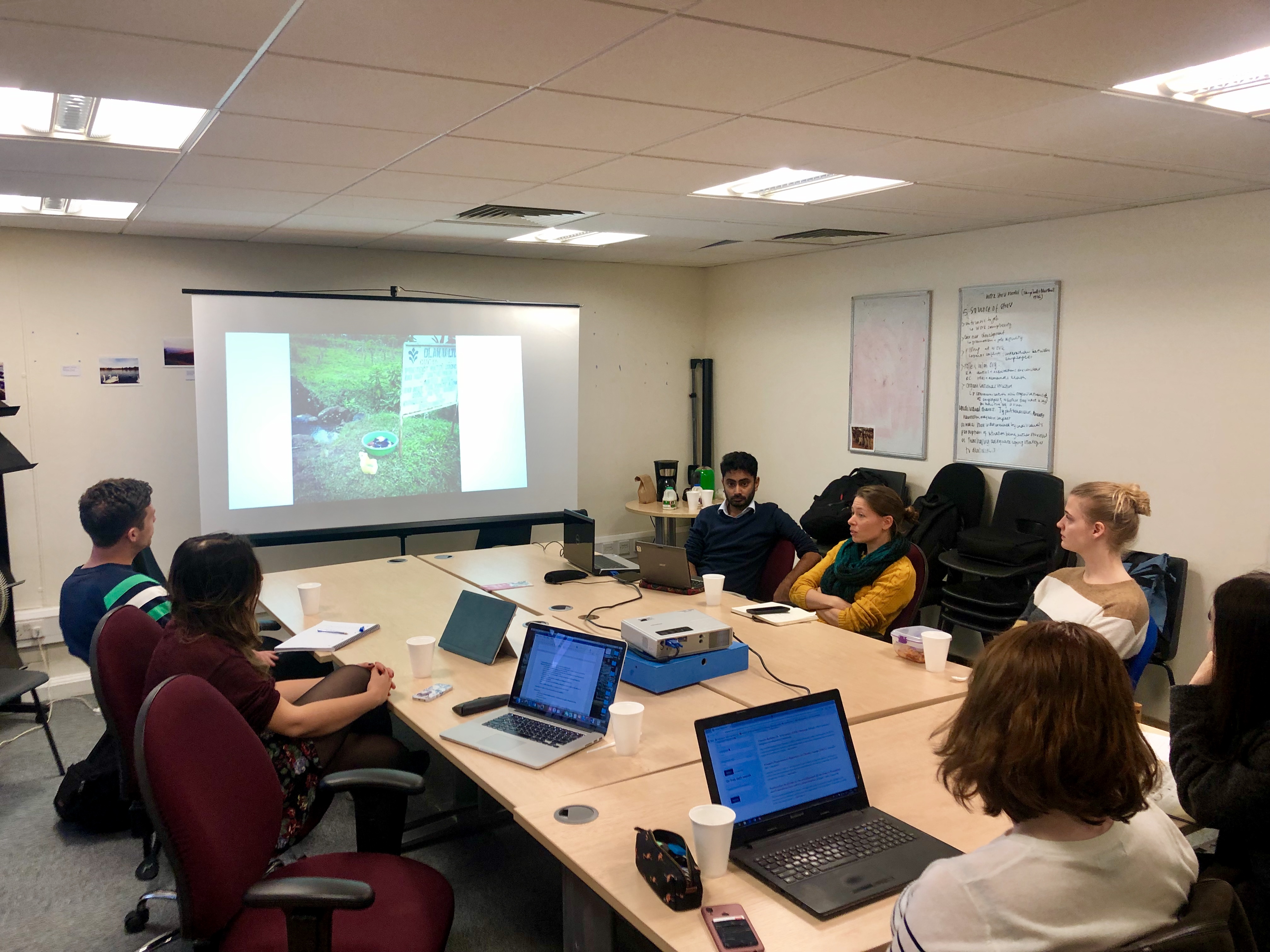The Development Management consultancy experience gives students the opportunity to work with organisations in the real-world and on hot topics that have the potential to influence policy. As William Guicheney, Hope Kyarisiima, Louisa Tomar and Tinashe Zimani explain, their experience with the Inter-American Development Bank forced them to think less academically, and more practically.
The Development Management consultancy experience with the Inter-American Development Bank (IDB) was academically rigorous and novel for our ‘Big Data’ team, including William Guicheney, Hope Kyarisiima, Louisa Tomar and Tinashe Zimani. For some of us, it would be the first time working on a project that would have the potential to impact policymaking, while for others getting ahold of the technical concept of ‘big data’ proved challenging at first.
As we began conducting research, with a desire to create something innovative, we quickly realized there was little to no academic research or empirical evidence related to big data for improved public service delivery or development generally. We adapted our approach, pivoting from private sector examples in developing countries to publicly available information on government use from high income countries. This would allow us to best fulfil the terms of reference developed by the IDB while at the same time meeting the department’s expectations of academic rigor.
The task necessitated extensive desk research with a fusion of technical assessments and of course, appropriate development contextualization. This wasn’t solely about gathering insights from peer-reviewed papers or NGO working papers, rather it required digging deep into technological magazines, dry tax authority reports, and near impossible to find PowerPoint presentations filled with incomprehensible acronyms known only to the consultants who made them. It was challenging to separate the hyperbolic benefits of big data from a more pragmatic assessment of the future value of healthy data ecosystems that Latin-American and Caribbean policymakers would reasonably consider investing in.
Hence, the initial ambition of the report was to include cost-benefit analyses of big data system integrations because it is so often lacking from the promotional literature produced by leading, technological firms. Unfortunately, that information proved to be extremely difficult to attain, instead we pursued a strategy of highlighting areas of concern and the range of investments required in the case studies so that there was little ambiguity about the extent of resources policymakers must consider beyond the purely technical.
The report itself, Big Data in the Public Sector: Selected Applications and Lessons Learned, analyzes different ways in which big data can be leveraged to improve the efficiency and effectiveness of public service provisioning. It describes five cases where massive and diverse sets of information are gathered, processed, and analyzed in three different policy areas: smart cities, taxation, and citizen security. The cases, compiled from extensive desk research and interviews with leading academics and practitioners in the field of data analytics, have been analyzed from the perspective of public servants interested in big data and thus address both the technical and the institutional aspects of the initiatives.
Based on the case studies, a policy guide was built to orient public servants in Latin America and the Caribbean in the implementation of big data initiatives and the promotion of a data ecosystem. The guide covers aspects such as leadership, governance arrangements, regulatory frameworks, data sharing, and privacy, as well as considerations for storing, processing, analyzing, and interpreting data.
London was selected as the smart city due to the team’s proximity and personal use of the city’s resources. Moreover, there is extensive information available to the public that outlines the efforts taken to integrate data analytics into London’s transit systems. The taxation case study covered the efforts of Brazil, the United States and China to offer many examples of how different countries are utilizing big data to streamline and improve tax collection and efficiency – a challenge facing many middle and low income countries. The security case study covered New York City’s well-known COMPSTAT program, analyzing it from a governance perspective while acknowledging its controversial history. The report also offers insights on the need for public-private partnerships to create the technical infrastructures as well as universal concerns about data privacy and protection.
Throughout the entire process, we worked very closely with our IDB contact, Ben Roseth, who was very forthcoming about the intended audience and the type of information policymakers would be expecting. This led us to produce two different reports, one that was substantially shorter, based in academic theory and submitted to the LSE for grading. And a second report which we continued to work on throughout exams and the dissertation writing period that emphasized the lessons from the case studies and followed a policy-guide format. We would like to recognize the outstanding support and guidance we received from Ben Roseth and Sebastian Acevedo at the IDB and thank them for reading and editing many drafts of the report.
As part of the MSc Development Management programme, teams of 3-5 students do ‘live’ consulting work for real-world, public, private, and non-profit organisations such as the World Bank, Oxfam, PricewaterhouseCoopers, GIZ, CARE, DFID, Save the Children, UNICEF, the Emerging Markets Group and Wedu. Along with seminar presentations, the project adds a key applied component – teaching students real-world practical skills. You can read similar blog posts from Development Management students here.






